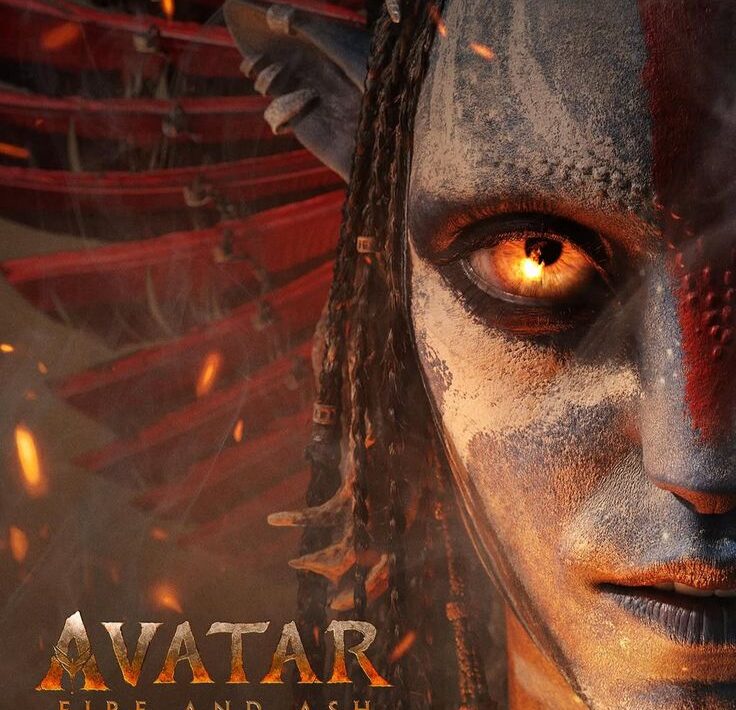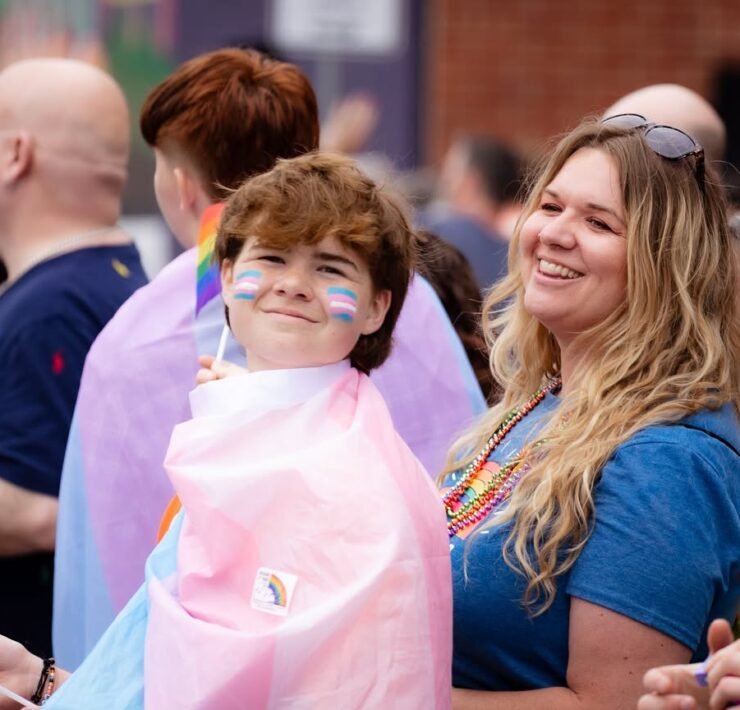Zoe Stoller Is Bringing Awareness About Queer Mental Health to Social Media

Micah (he/they) is Transmasculine/Nonbinary, and a Colorado transplant. He grew…
May is Mental Health Awareness Month. Zoe Stoller (all pronouns) makes it their goal to bring awareness about queer mental health on his social media platforms beyond the month of May.
Stoller makes it her goal to inform and educate others on topics of gender, sexuality, and mental health. Just because we are highlighting mental health this month doesn’t mean it’s not important any other day, week, or month! Stoller is making it their goal to bring awareness everyday.
OFM had the opportunity to talk to Zoe Stoller and hear about her passion and why it’s so important to them.

Who is Zoe Stoller?
I am queer, gender fluid, asexual, I’m also a dog lover, a creative person, a writer, a social worker. I think at my core, I’m a very caring, loving person. My main value I think really is love. So Zoe is love. Zoe is trying to bring brightness into the world. I value education, knowledge and kind of using those to bring light and brightness and love throughout. Zoe is a lot of things and those are just some of the things that Zoe is.
What does being a social worker mean to you?
I really love being a social worker, partially because of how broad it is and how it can mean so many different things to so many different people. I’m very interested in the community policy advocacy route. I like working with larger communities. Some people kind of go the more individual therapy route, and perhaps that could be something in the future. Right now I love being able to work with large communities and specifically like the LGBTQ community creating programming, doing education, doing anything that people just need.
It’s a really cool field, a really broad field again, and one that’s really based in just valuing the people around you and really valuing everyone’s self determination, understanding that everyone has different contexts that they come from that really shaped who they are, how they view the world, how they interact with other people. and just being really open minded as you go through the world and work with people around you and try to bring that light and love and care so much about to people who don’t typically in our society receive that and get uplifted in that way. Being a social worker is very aligned with my values and that’s what I really like about it.
What type of work do you do for the community?
My work is focused on spreading LGBTQ education through social media. For the past four years, I’ve been using Instagram, Tiktok and all the social media platforms to connect with the LGBTQ community and create educational videos, infographics, writing, sharing about different identities, different experiences, different common misunderstandings and misconceptions that people have about the LGBTQ community. That’s been a really fun way to put forth my advocacy and my care for the LGBTQ community while also combining it with my passion for creativity, and also my marketing background prior to becoming a social worker.
I realized that the skill sets I learned could be used for something that I really care about, which is working with the LGBTQ community, and I actually discovered my gender through social media. It’s really nice to be able to get work online and utilize the power of that space. I also do a lot of things in person as well. I just finished working at the University of Pennsylvania, in their LGBT center, doing an LGBT programming, education, and working one on one with students. It was really nice to be able to return to that space and be able to work with students and to see all the amazing things that they’re doing. I was able to create LGBTQ-specific programming for that and uplift them in whatever ways would be most helpful. That was really lovely. Right now I’m focusing on my social media work.
What makes you want to use your platforms to share about mental health for the queer community?
Before discovering that I am queer and trans and nonbinary, I struggled with my mental health. I didn’t really know why. Now I understand that it was because I was shoved into straight boxes that didn’t feel right. I took it inward and thought that there was something wrong with me. In my own personal healing and recovery journey with my mental health and in therapy just working on myself, that’s when I was able to start exploring what my own path could look like and what would make me feel most like myself and happy in this world.
I know how prevalent it is, and I know how alone people can feel. Now that I’ve started to talk about things I’ve realized that not only other people understand, but also so many of our experiences with struggling with mental health are so similar, even if we’re struggling for very different reasons. The more we can talk about it and normalize it, hopefully the more we can feel less alone. That’s why it’s important to me and a huge part of the work that I do online.

What do you hope others take away from your content?
I hope that people can use my content to learn more about themselves. I hope that it inspires them to be more rooted in who they are and feel more affirmed and grounded and be able to show up as their authentic selves in the world. Some places may not be safe so online spaces might come into play to be your authentic self. I really hope that my page can be a space of learning of grounded-ness and validation.
What’s one of the most rewarding things about what you do?
I think one of the most rewarding things is hearing that my content has helped people either discover parts about themselves or learn more about other people in their lives or just feel less alone in general and are validated. Because those are all the things that I felt when I was discovering my identity, gender fluid through social media.

If someone wanted to start sharing and advocating for mental health care within the queer community where should they start?
Definitely everyone can do it. If you know, if you feel passionate about a message and you want to share it or if you want to share your own story. You can do it, and social media is a wonderful place for people to just start sharing their stories. Social media is one place. You can also get involved with LGBTQ or mental health organizations that are local to you. Focus on what feels right to you like research, public speaking, and creating art. There are many ways to advocate for mental health within the LGBTQ community.
What’s one thing you would say to a queer individual struggling with their mental health?
You are not alone. I know that mental health can really make us feel very isolated. It’s important to remember that you’re not the only one who’s experiencing this. There’s so many other people who are there to validate you to hear you can understand what you’re going through. what you’re going through is not permanent. Everything is temporary, even our feelings can go up and down. Nothing is permanent. There are many people out there who understand you and want to be there for you.

Do you have any upcoming announcements or anything else you want to share?
I’m about to enter my third year doing a partnership with Janssen on their campaign called “depression looks like me.” That is specifically about depression within the LGBTQ community. I will be sharing more content about that intersection on my page throughout the year. I have on my linkin.bio a submission form if there’s any specific topics that anyone is interested in having covered, any questions or want to share a message that’s a resource people can use as well. I plan to continue sharing the same content I’ve been doing. I started doing this in march of 2020 during the quarantine, so it is really exciting and interesting to be entering my fourth year of this. I’m very very proud and passionate about the work I’ve done and I’m excited to keep going.
If your interested in learning more about what Zoe Stoller, follow them on his social media pages here.
Photo courtesy of Zoe Stoller
What's Your Reaction?
Micah (he/they) is Transmasculine/Nonbinary, and a Colorado transplant. He grew up in Southern Maine as a pastor's kid. They have found a passion for digital communication, using their skills to champion inclusivity and amplify marginalized voices. He is the Social Media Marketing Manager for OFM. Micah is also passionate about mental health within the queer community.










